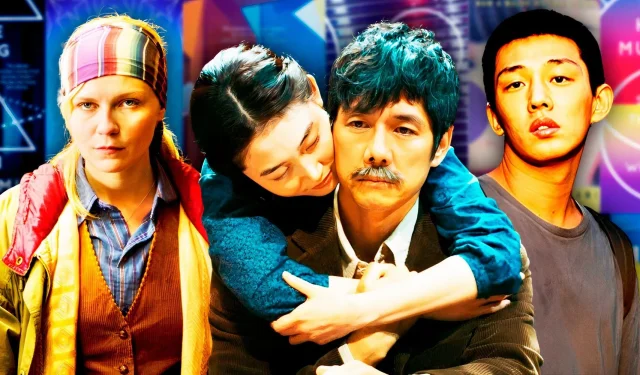
Haruki Murakami, the acclaimed Japanese author, is renowned for his captivating essays, short stories, and novels that have mesmerized readers on a global scale. His unique narrative style not only enchants literature enthusiasts but also influences filmmakers. Since the 1980s, numerous films have been adapted from his works, including notable titles such as *Norwegian Wood*, *The Elephant Vanishes*, and the *Trilogy of the Rat*. These adaptations highlight the profound impact Murakami’s narratives have had on Japanese literature, leading naturally to their translation onto the cinematic stage.
To date, there have been ten noteworthy adaptations of Murakami’s literature, each striving to engage even the most passionate followers of his writing. However, given the complexity of Murakami’s themes and his poetic use of language, translating his work into film poses a considerable challenge. Consequently, while some adaptations manage to capture the essence of his stories effectively, others may fall short.
10
All God’s Children Can Dance (2008)
Directed by Robert Logevall
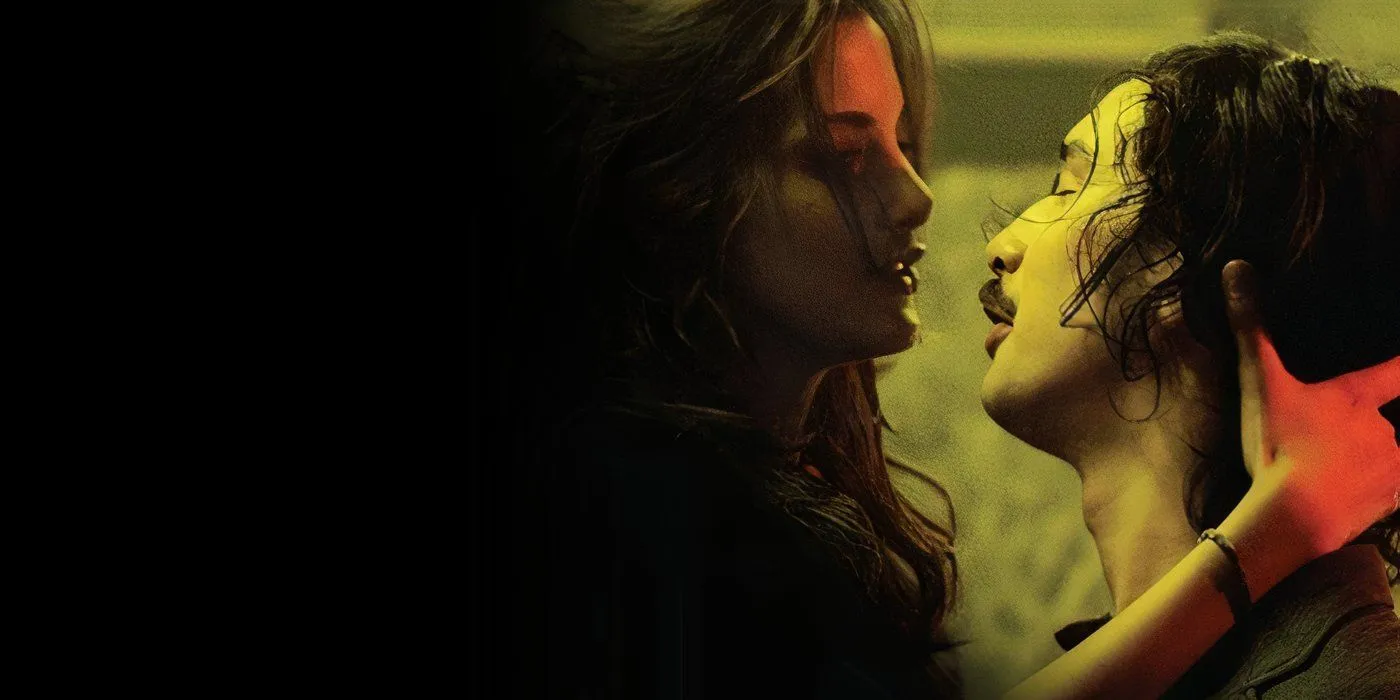
The feature film All God’s Children Can Dance is grounded in a Murakami short story and tells the tale of Kengo, a teenager residing in Los Angeles’ Korea Town with his mother, Evelyn. As Kengo grapples with his obsessive attachment to his mother, his girlfriend Sandra grows increasingly frustrated by his lack of ambition.
Directed by Robert Logevall, this film marks the first English-language adaptation of Murakami’s work. While the source material is deeply rooted in Japanese culture, the film adopts an American perspective, which some critics argue detracts from the original’s nuanced exploration of themes. Critics assert that the film leans heavily on romantic and sexual elements, overshadowing its underlying themes of existentialism and spirituality.
9
Hear the Song of the Wind (1981)
Directed by Kazuki Ômori
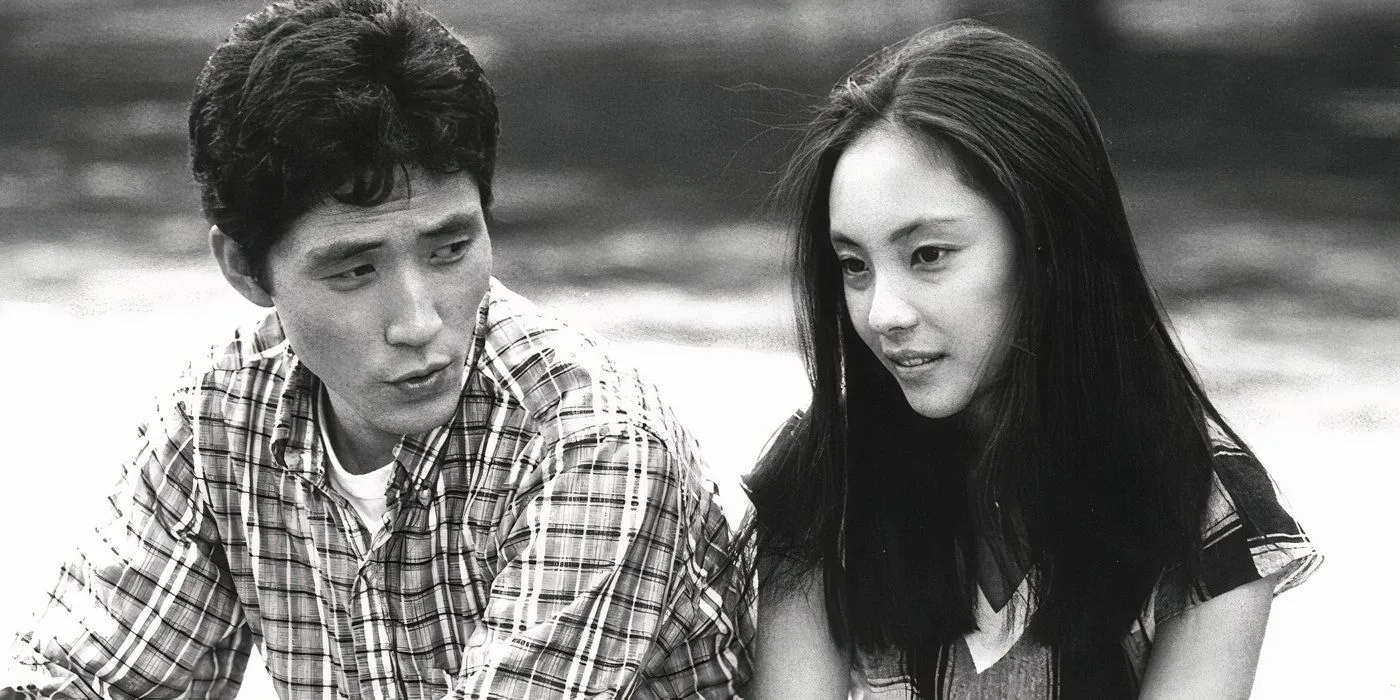
Also recognized as Hear the Wind Sing, this film adaptation of Murakami’s debut novel features an unnamed narrator (referred to simply as “Me”) who reflects on his youth and relationships while enjoying drinks with a friend named Rat in a Kobe bar. His encounter with a woman reminiscent of a past love propels the narrative.
The film closely follows the novel’s narrative; however, its slower pacing may disengage viewers looking for more dynamic storytelling. While the book’s character-driven exploration can feel profound, the film’s approach may come across as sluggish, highlighting the difficulties in adapting Murakami’s introspective style to cinematic form.
8
Hanalei Bay (2018)
Directed by Daishi Matsunaga

Hanalei Bay narrates the poignant story of a mother coming to terms with her son’s tragic death. Following a shark attack, Sachi travels to Kaua’i to confirm the identity of her deceased son, Takashi. Sachi’s grief instigates an annual pilgrimage back to the bay, where she encounters two surfers who help her reconnect with her lost happiness.
Written and directed by Daishi Matsunaga, this adaptation successfully captures the emotional depths of Murakami’s original material. Yoh Yoshida delivers a powerful performance as Sachi, though the film struggles with pacing, attempting to intersperse flashbacks that, while meaningful, can feel somewhat jarring.
7
The Second Bakery Attack (2010)
Directed by Carlos Cuarón

Starring Kirsten Dunst and Brian Geraghty, The Second Bakery Attack is an absurdist short film adaptation of a Murakami story. It follows newlyweds Nat and Dan, who, struck by hunger and desperation, contemplate robbing a bakery to break a perceived curse on their marriage. Directed by Carlos Cuarón, the film brings a fresh American twist to Murakami’s quirky narrative.
Although set in a different cultural context, this adaptation retains the original’s humor and absurdity through the exceptional performances of its leads.
6
A Girl, She Is 100% (1983)
Directed by Naoto Yamakawa
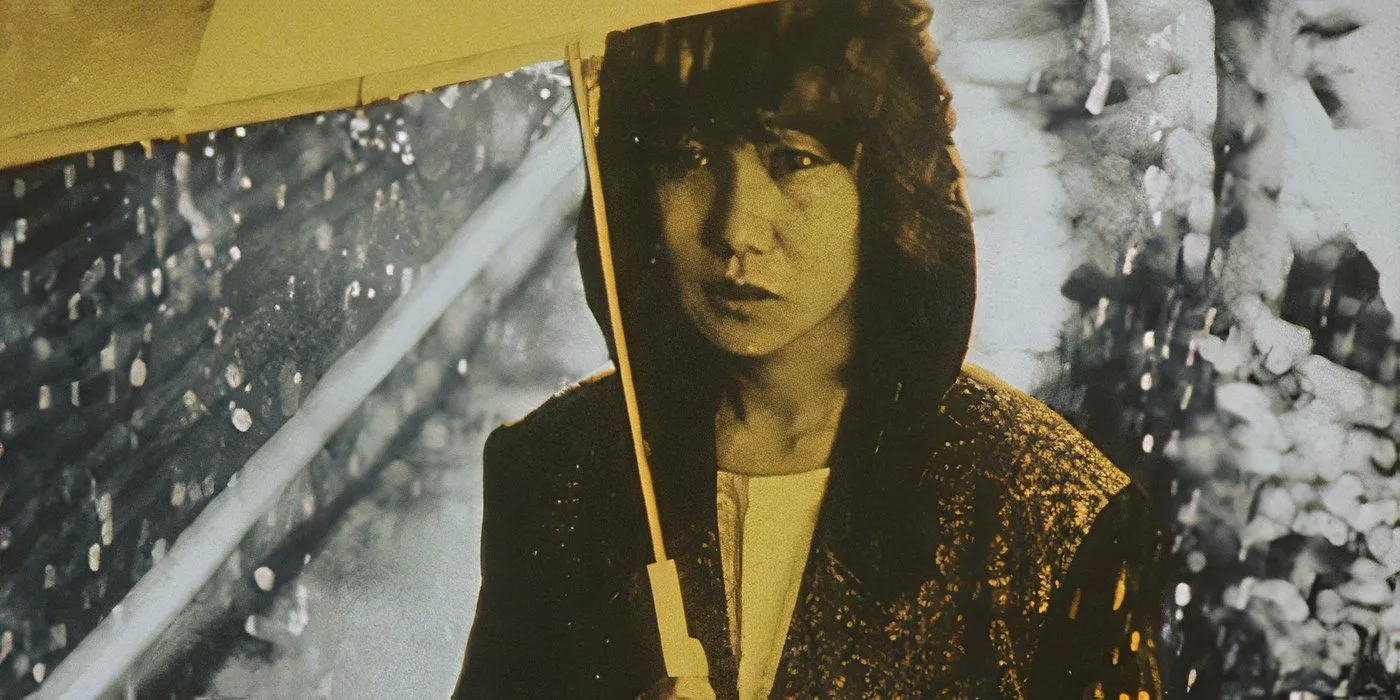
A Girl, She Is 100% transforms Murakami’s short story *On Seeing the 100% Perfect Girl One Beautiful April Morning* into a short film that captures the essence of longing. The protagonist encounters a woman on the street whom he believes is the epitome of his ideal partner but struggles to approach her. Instead, he indulges in elaborate daydreams about their possible connection.
Yamakawa’s artistic vision efficiently conveys the bittersweet essence of the narrative through innovative visuals, employing abstract animation and vibrant colors that resonate with Murakami’s themes of love and chance encounters.
5
Norwegian Wood (2010)
Directed by Tran Anh Hung
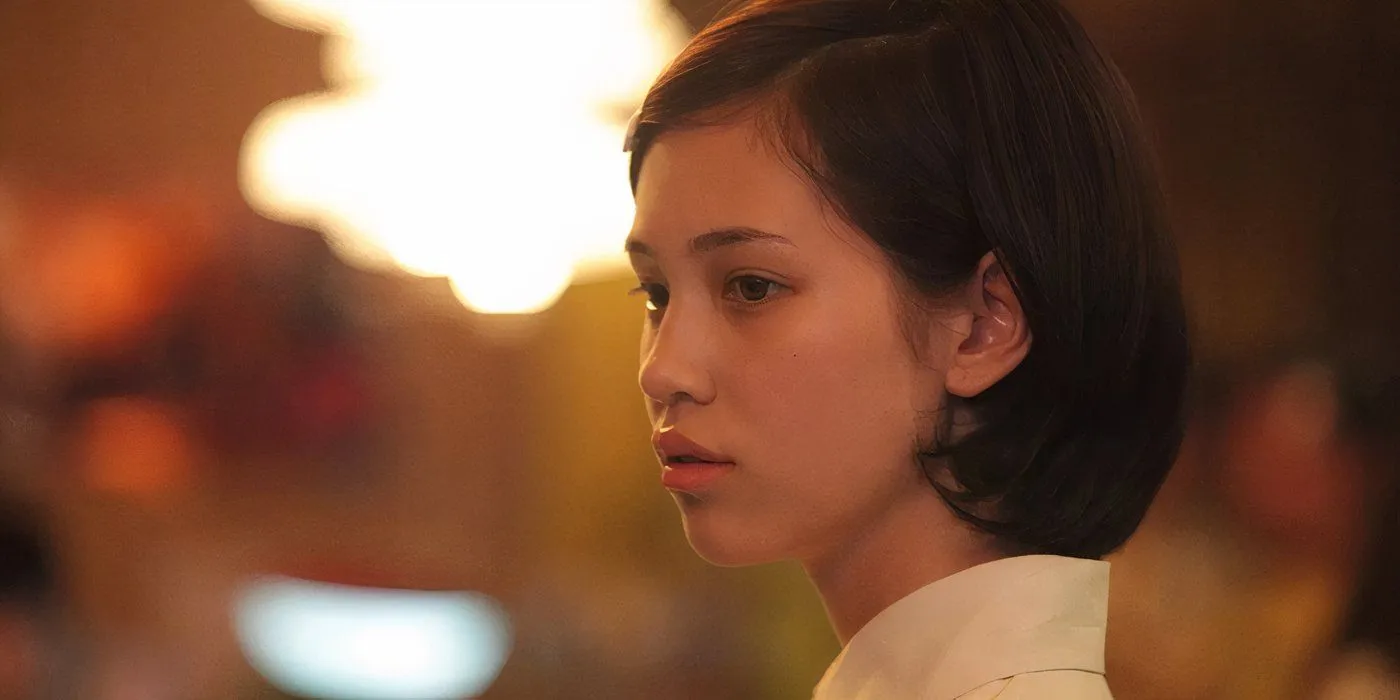
In this adaptation of *Norwegian Wood*, directed by Tran Anh Hung, Kenichi Matsuyama stars as Toru, a young man haunted by the suicide of his childhood friend. His search for solace leads him into a relationship with Naoko, Kizuki’s girlfriend. As their bond deepens amid shared grief, Naoko’s mental struggles create obstacles between them.
This film artfully explores the themes of love, loss, and melancholy, although some fans of the original novel noted that key elements were omitted. Despite this, *Norwegian Wood* stands out as a compelling introduction to Murakami’s work for new audiences.
4
Blind Willow, Sleeping Woman (2022)
Directed by Pierre Földes
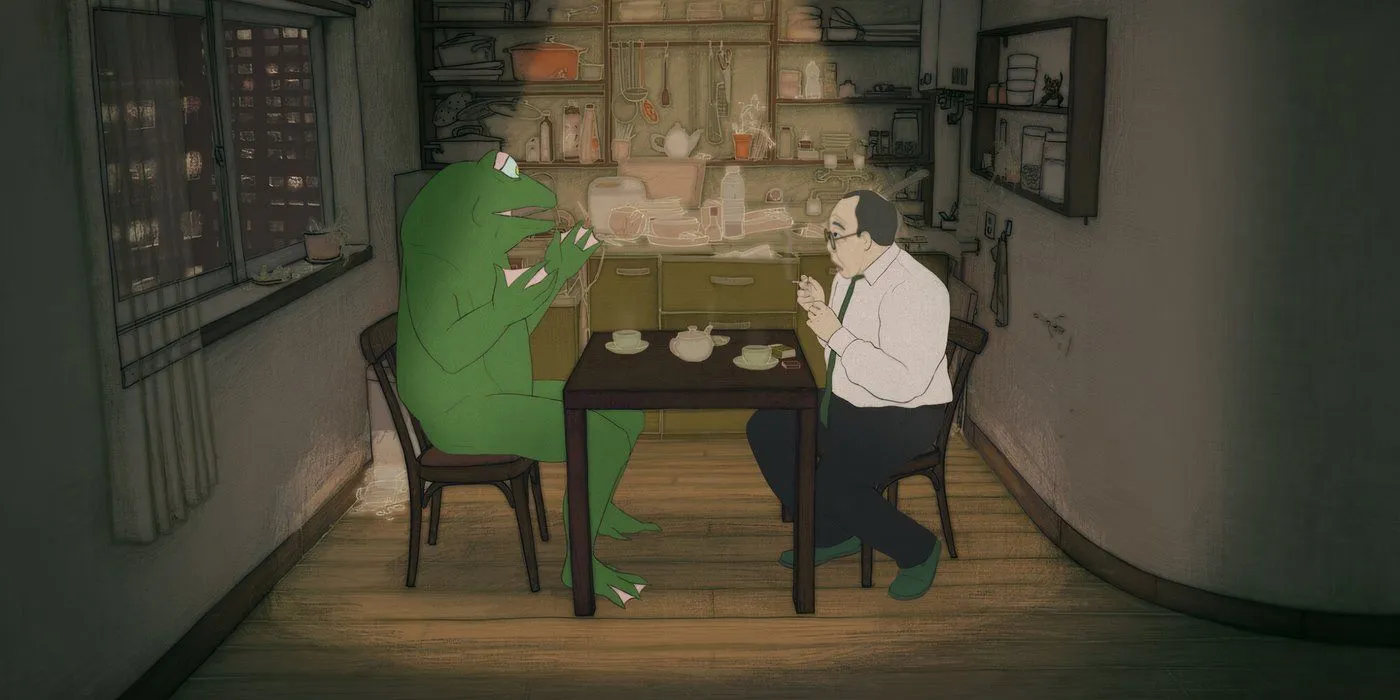
Blind Willow, Sleeping Woman presents an intriguing animated anthology inspired by the real-life calamities of the 2011 Tōhoku earthquake and tsunami. The film intertwines various narratives, including a man’s struggle to accept his wife’s departure and a peculiar encounter with a man-sized frog, heightening the film’s surreal atmosphere.
Directed by the multi-talented Pierre Földes, the film fuses Murakami’s intricate storytelling with captivating animation, effectively blending human emotion with fantastical elements. Its artistic flair won it a Jury Distinction at the 2022 Annecy International Animation Film Festival.
3
Tony Takitani (2004)
Directed by Jun Ichikawa
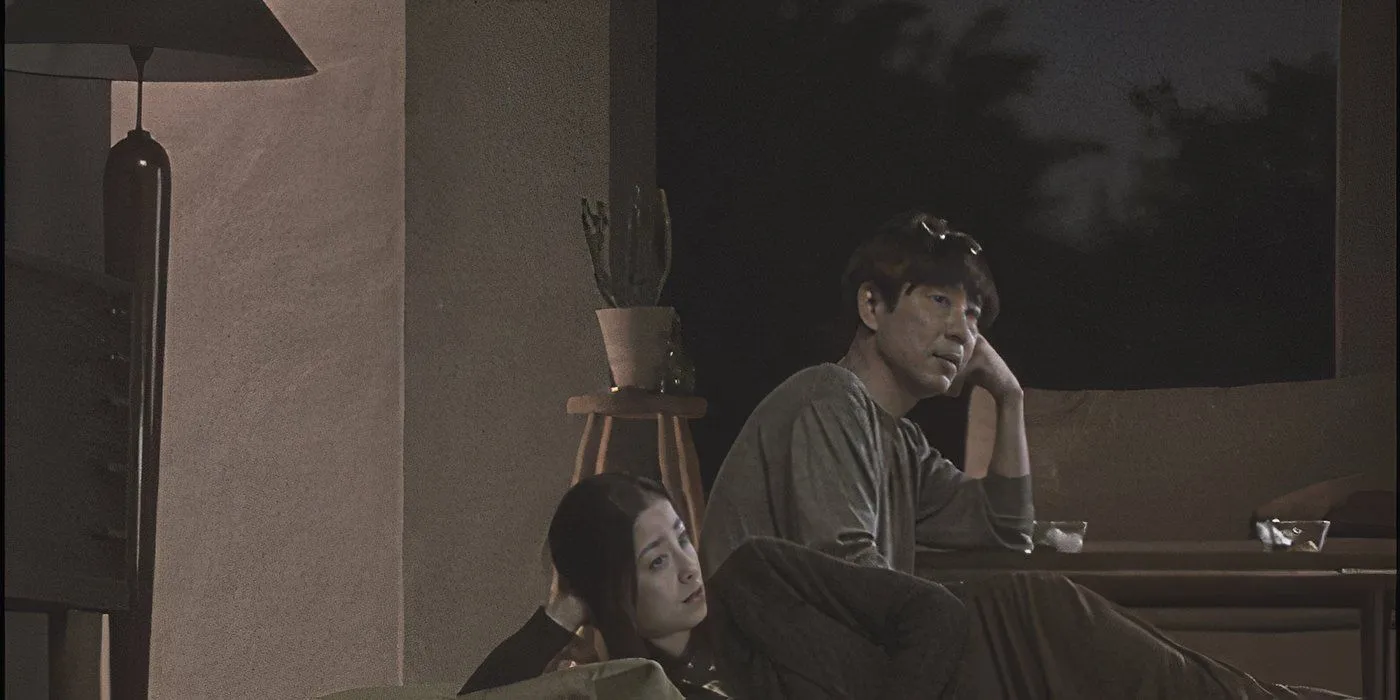
Tony Takitani is a poignant adaptation of one of Murakami’s iconic short stories. It tells the story of a man, Tony, who falls for Eiko, a client whose extravagant fashion sense eventually leads to tragedy following her untimely death in a car accident. Grieving deeply, Tony hires an assistant on the condition that she wears Eiko’s clothing.
With a haunting score by Ryuchi Sakamoto, the film encapsulates Tony’s feelings of loneliness and despair, presenting a profound portrayal of grief that resonates well with audiences.
2
Drive My Car (2021)
Directed by Ryusuke Hamaguchi

Drive My Car, directed by Ryusuke Hamaguchi, explores the life of theater director Yūsuke Kafuku, who, after the death of his wife Oto, accepts a directing role in Hiroshima. The production requires him to have a driver, leading to the introduction of Misaki, with whom he gradually forges a bond steeped in shared sorrow.
Despite its three-hour runtime, the film’s poignant narrative and character development have received acclamations, achieving a 97% approval rating on Rotten Tomatoes. Critics have praised it as an “engrossing experience” and note the film’s numerous accolades, including the Academy Award for Best International Feature Film in 2022.
1
Burning (2018)
Directed by Chang-dong Lee
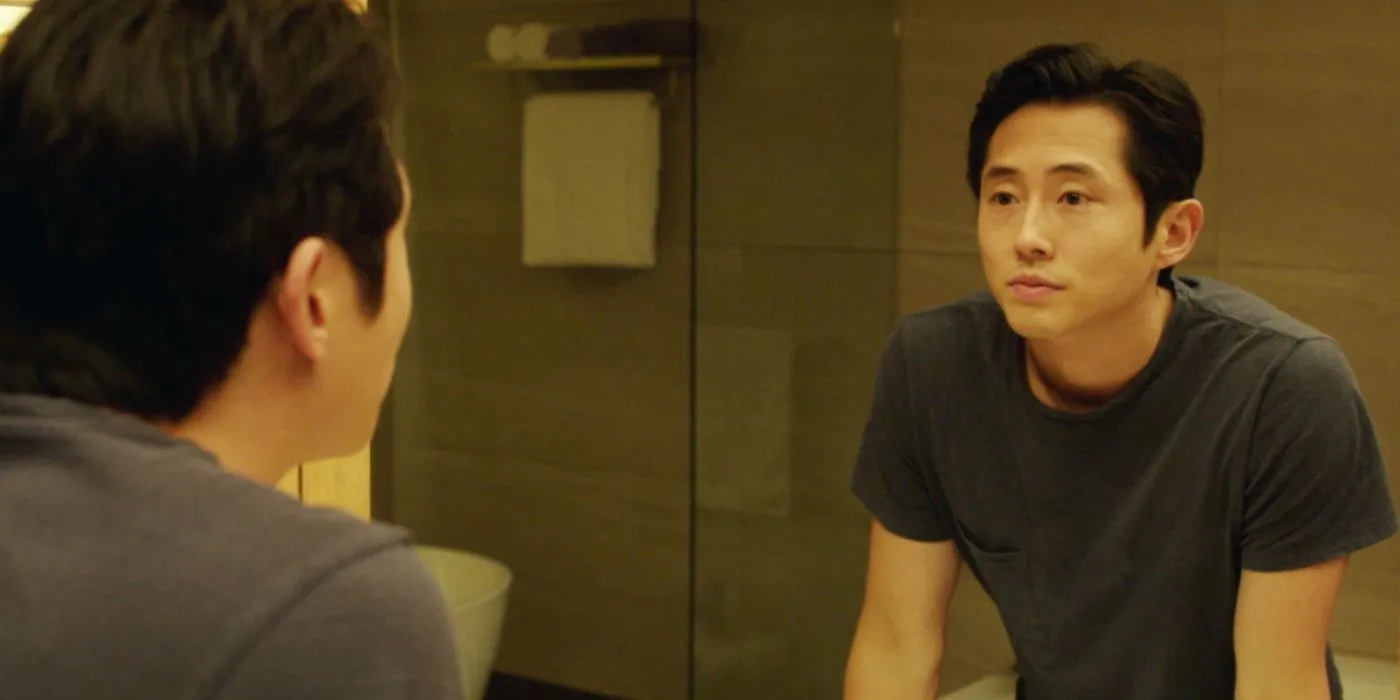
Burning is a South Korean psychological thriller based on Murakami’s short story “Barn Burning.”Starring Yoo Ah-in and Steven Yeun, this film follows Jong-su, an aspiring writer who becomes embroiled in intrigue after meeting his childhood friend Hae-mi and her mysterious friend Ben. As Hae-mi disappears, Jong-su’s quest for answers leads him to a path filled with danger and self-discovery.
This adaptation uniquely enhances the source material, expanding its narrative with rich tension and character depth. Universally lauded by critics, *Burning* is celebrated for its ability to elevate the simplicity of the original tale into a compelling cinematic journey.




Leave a Reply